11 Driveway Extension Ideas for Additional Paved Space
Pave space for the things you need to do


You know you need more driveway space, but how much do you need and how should you lay it out? The range of driveway extension ideas is fairly wide, some of which we’ll cover below. Each option is adaptable to your specific needs. Be sure to get the necessary permits if your driveway extension will connect to the road. And building codes vary, so it’s worth verifying what’s current in your area. Driveway paving contractors should be thoroughly familiar with codes and regulations.
1. Drive Back to a Detached Garage
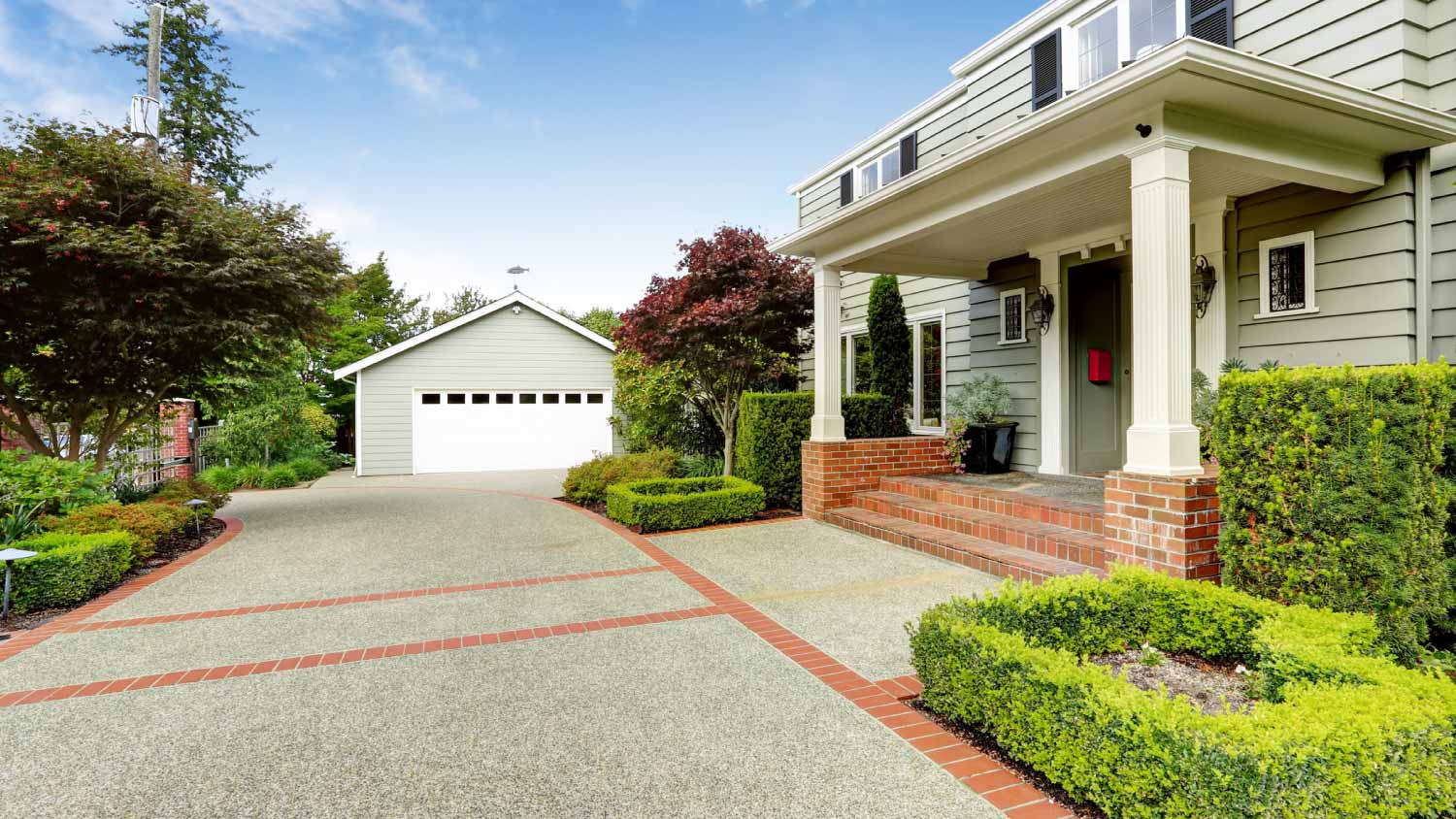
If you’ve added a detached garage or haven’t connected it with the driveway, extending the pavement back to the driveway ties everything together. Not to mention, it makes it easier to get vehicles, lawn mowers, and other equipment in and out of the garage. You’ll have a bit of extra parking as a bonus!
2. Create a U-Shaped Driveway
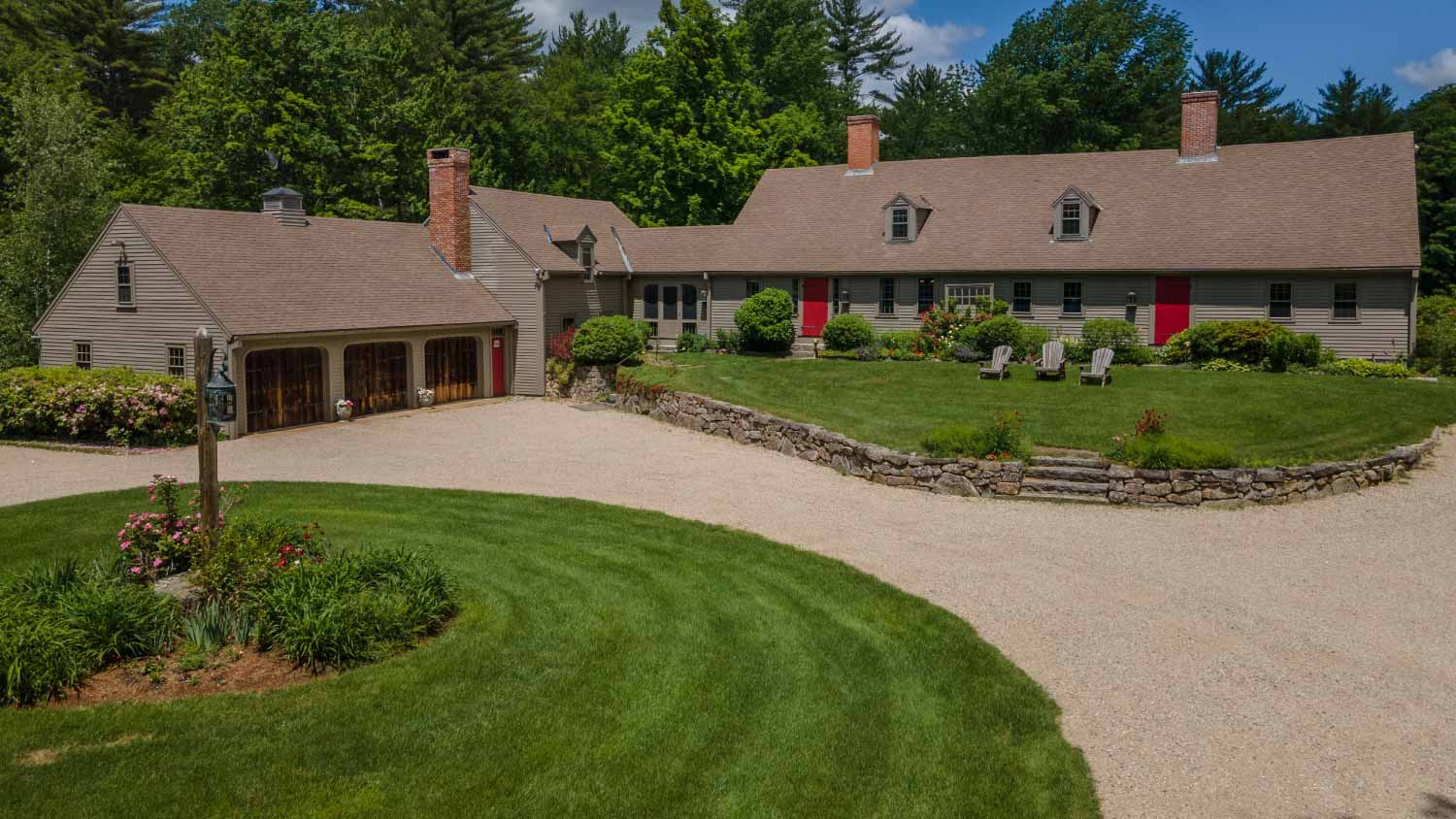
If you have the space, a U-shaped driveway extension is great for lots of additional parking and simplifying the exit if you live on a busy road (no more backing out between traffic flows). Keep in mind that this driveway extension cost probably won’t be much different from putting in a new driveway.
3. Build a Y-Shaped Driveway
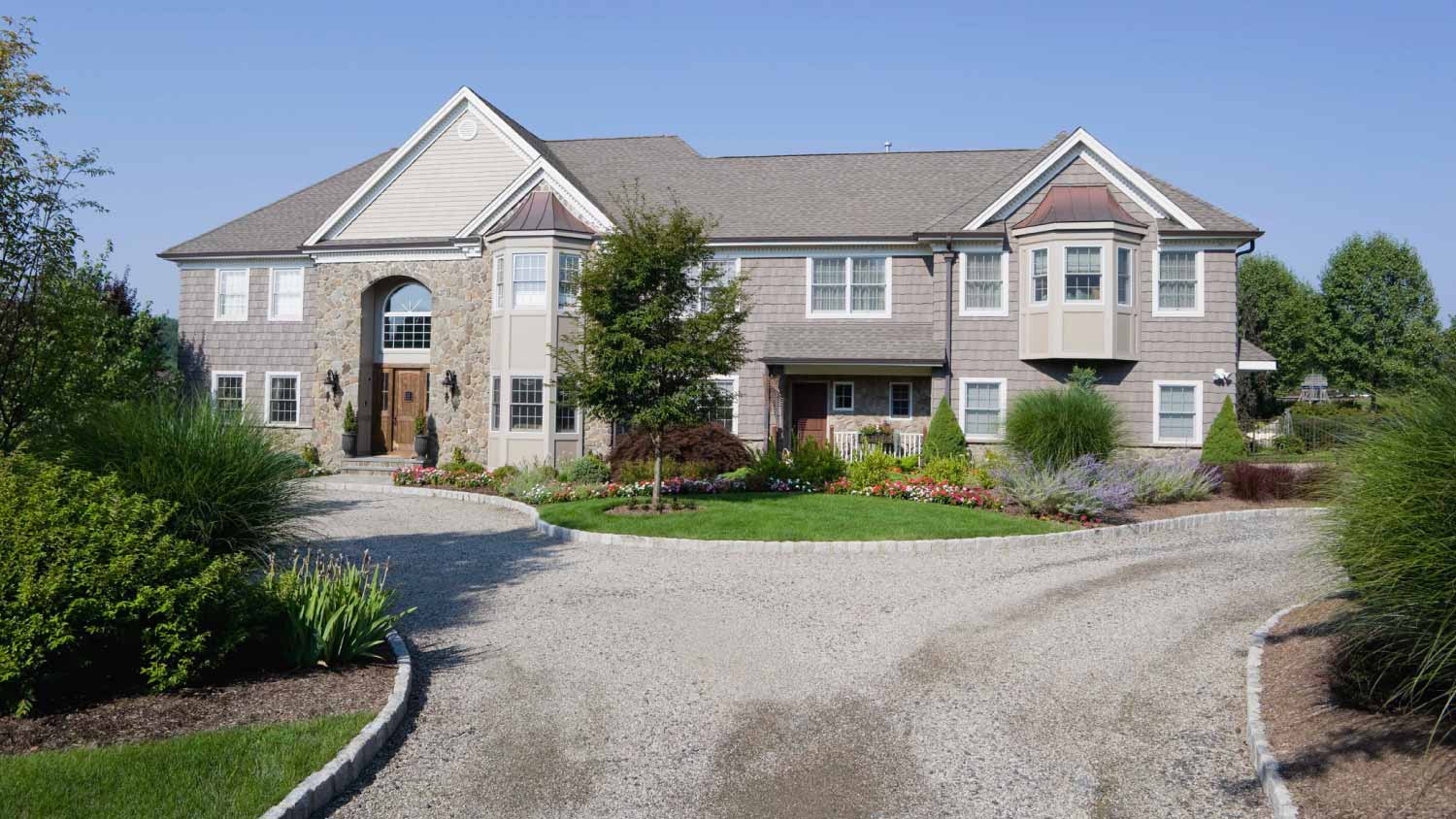
Adding another wing to the driveway can make your stately manor look even grander. A Y-shaped driveway is an excellent option for larger, longer homes with the garage and entryway far away from each other. This also keeps guests from walking through your garage to enter the house.
4. Pave a Path to the Pole Barn
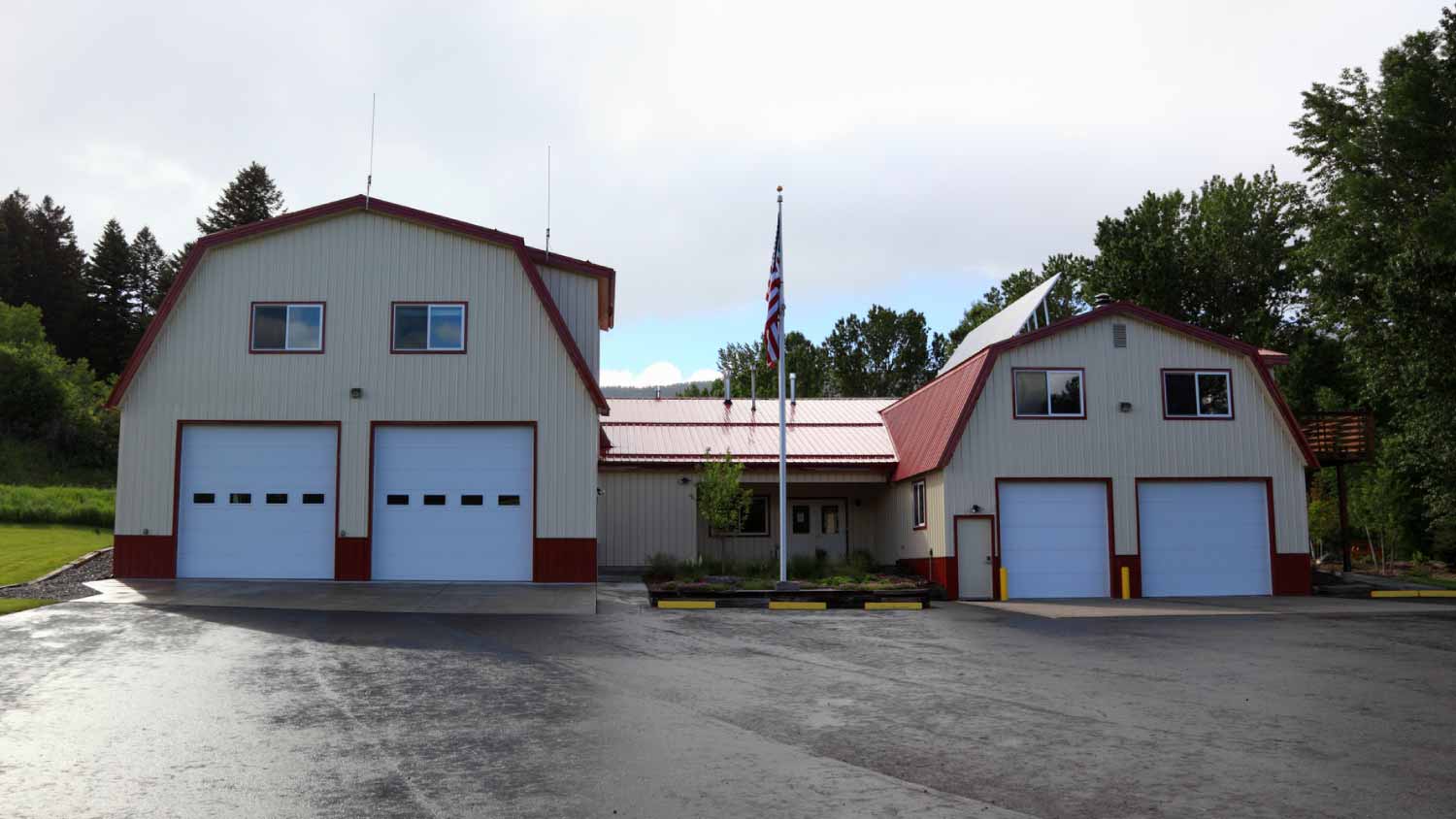
If you have a pole barn with no pavement to it, maybe it’s time to extend that driveway. Replace that grass or gravel going to the pole barn with a driveway extension made of concrete, asphalt, or pavers. It’ll be cleaner, there will be less grass to mow or no more gravel to grade, and it’ll be far more useful than a muddy set of tracks.
5. Reach the Backyard
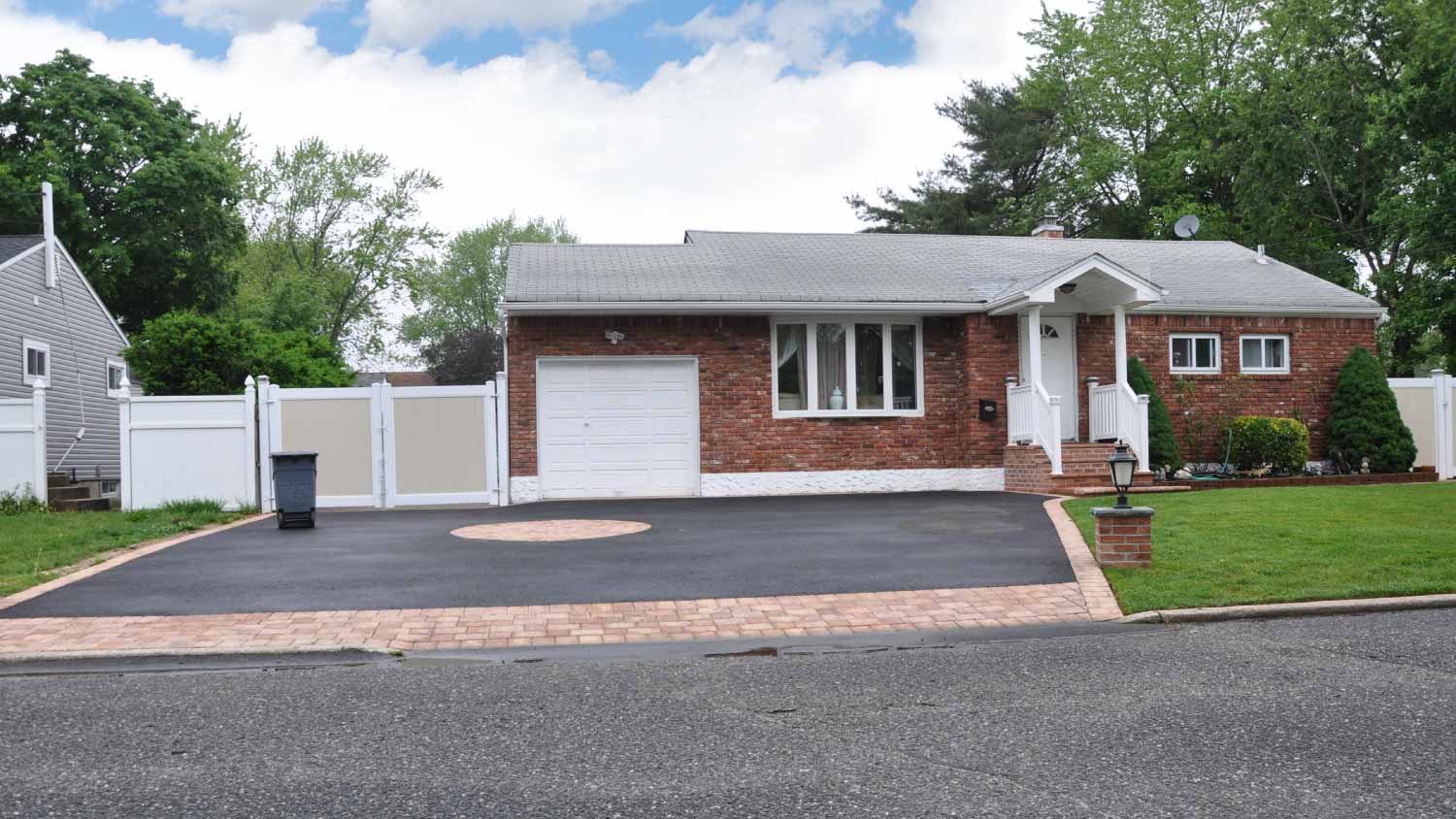
It’s relatively simple, but extending the driveway alongside the garage or house to the backyard can make moving mowers, trailers, and other equipment easier and cleaner. There will be no more tearing up the grass and filling in ruts to reseed. And when you’re not using it, you’ll have additional parking space.
6. Put in a Basketball Court
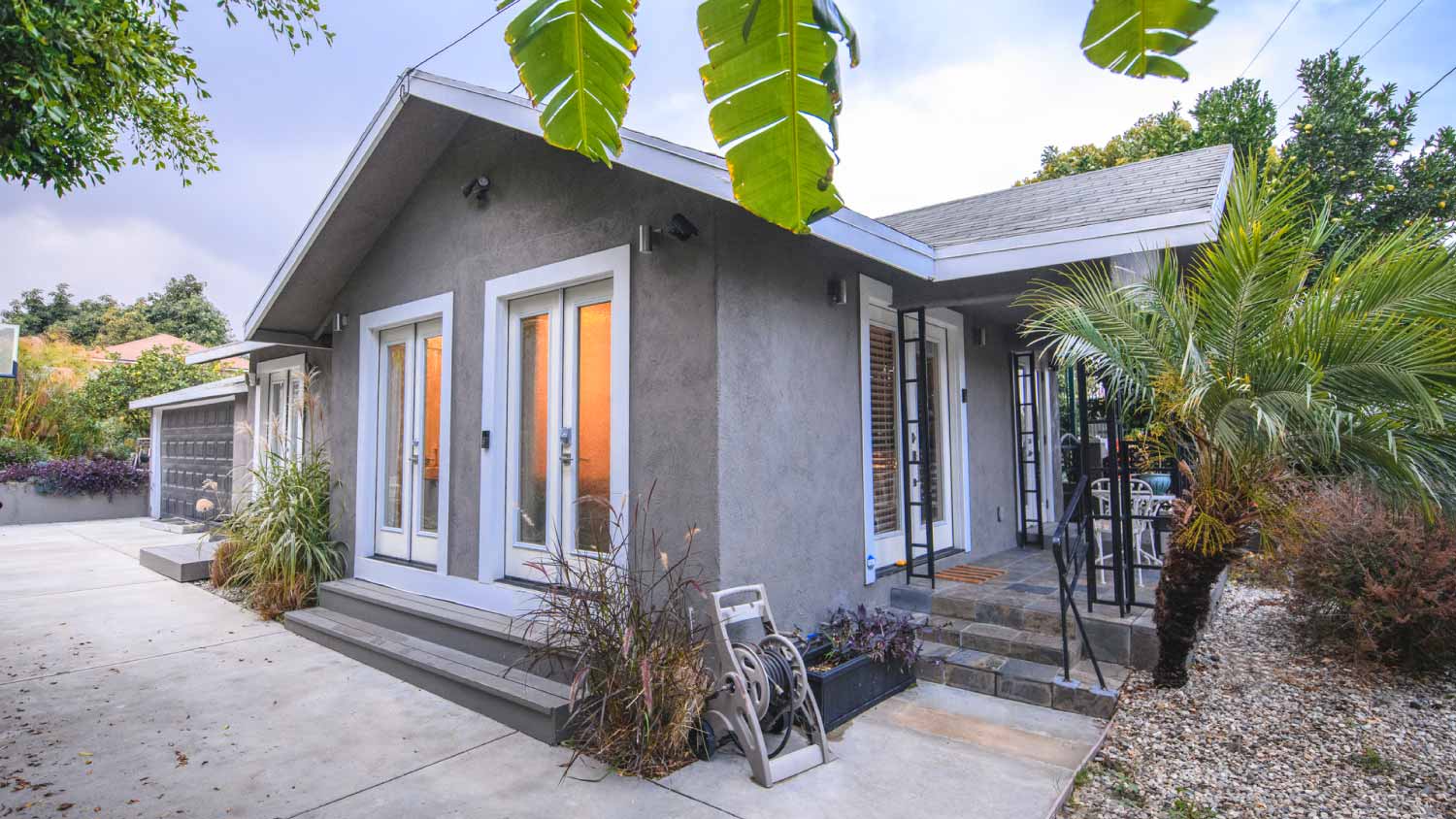
Sometimes, you need more room to play some basketball. Depending on your space, adding a 20-by-20- or 24-by-24-foot slab makes for a fantastic basketball court. It also doubles as a lot of extra parking. But check with local ordinances to see how far you need to stay off the property line between you and the next-door neighbor.
7. Add an Extra Parking Spot
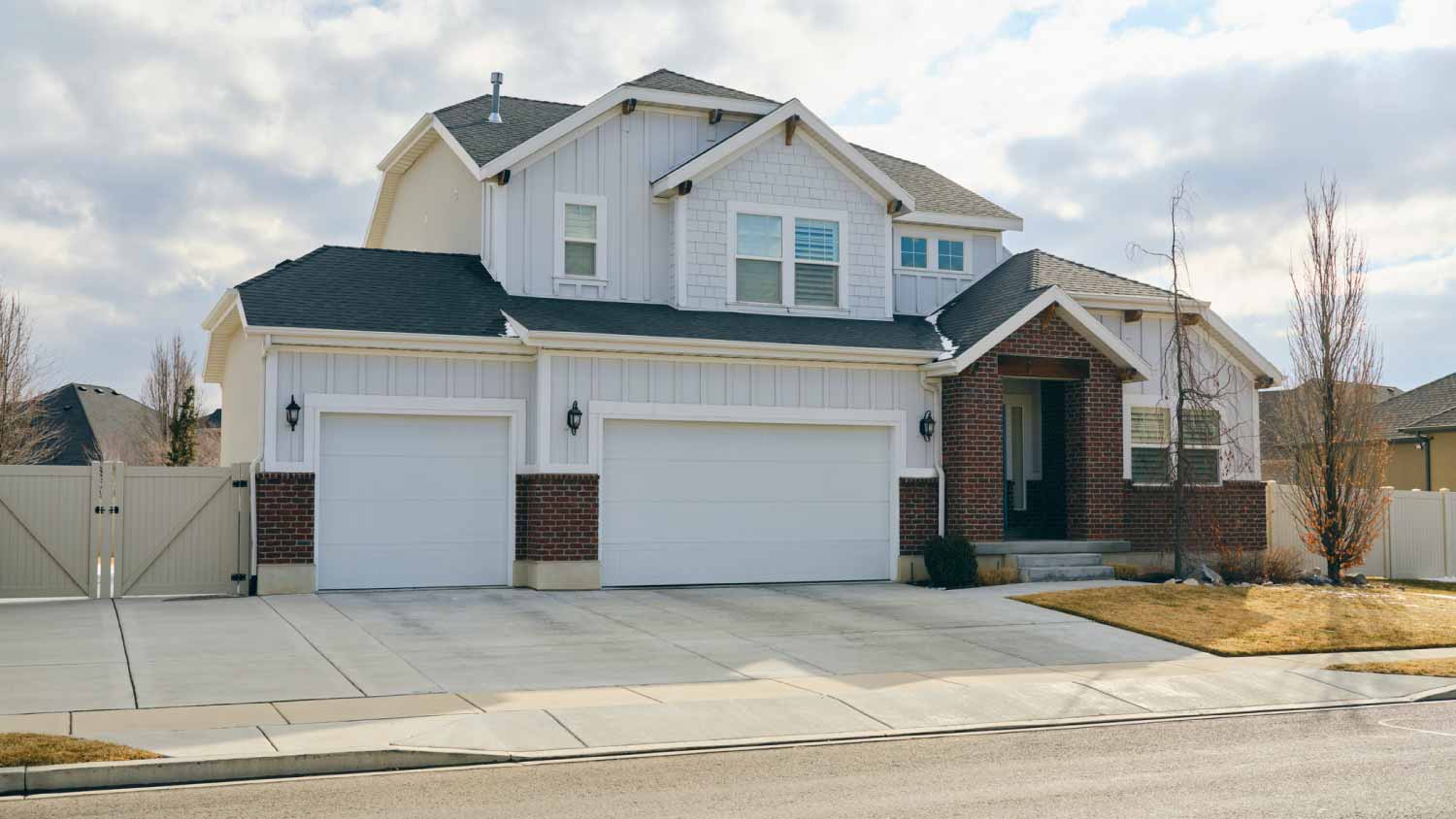
Adding a 10-by-20- or 12-by-24-foot parking space can free up much room on your driveway. By doing so, you can avoid shuffling cars to let someone out when they want to leave for work. But this isn’t a DIY project if you’re concerned about looks and durability. Talk to a concrete contractor about where the price break points are for different square footage, as many concrete companies have to charge a minimum amount for smaller jobs.
8. Take the Pavement to the Road
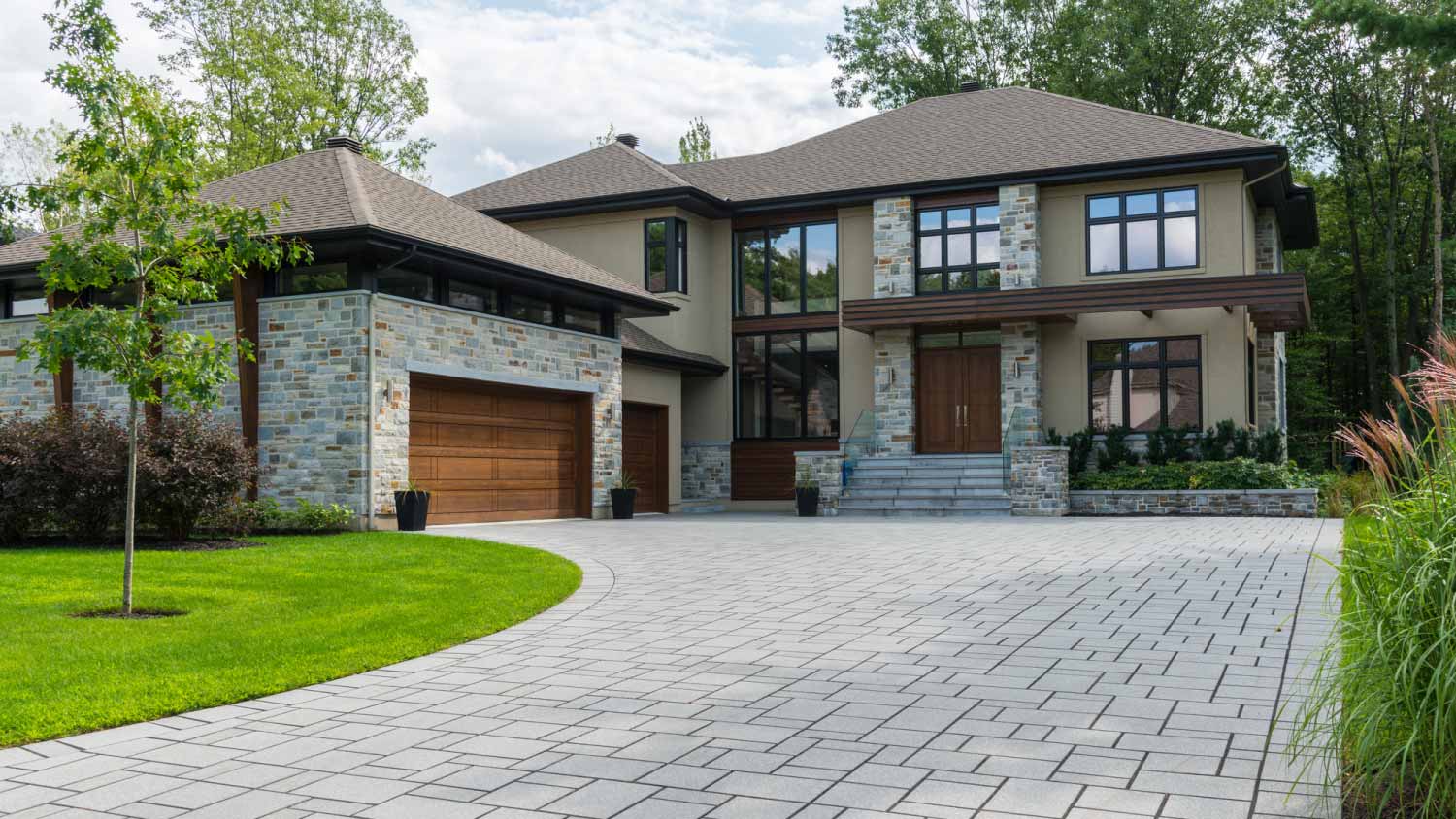
If your driveway came incomplete, now’s the time to take the pavement to the road and stop dealing with muddy gravel or potholes. It may be difficult to find a material that matches the color and texture exactly, though weathering over time will bring them closer. If you already have a concrete or paver driveway, consider extending it with asphalt. Compared to concrete and pavers, asphalt may save you some money on driveway apron costs.
9. Widen Your Driveway With Another Lane
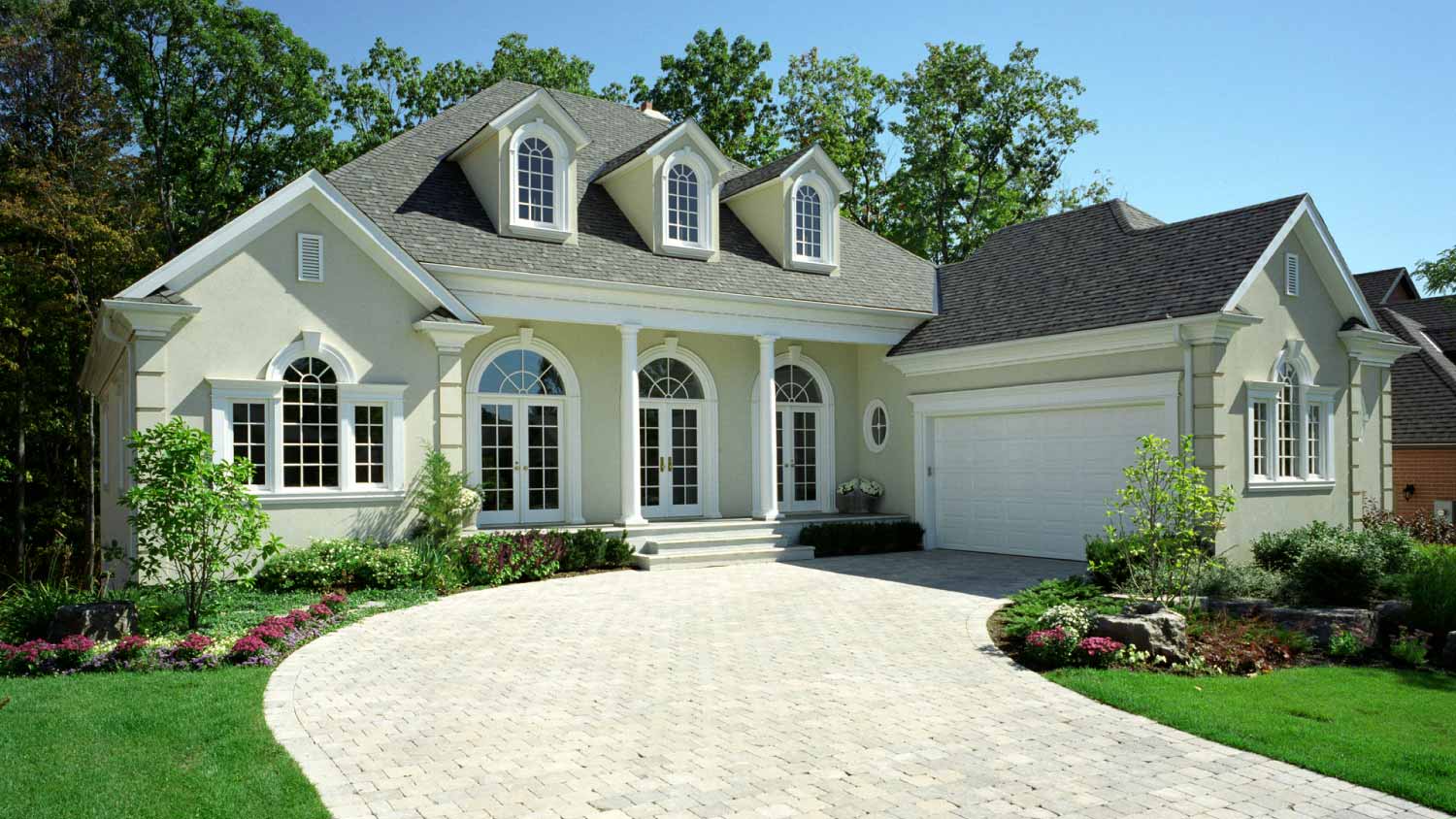
If you’re frustrated with your driveway width and have room for expansion, widen it by paving alongside an existing driveway. Depending on how wide you want to go, you may want to determine the cost difference between an extension or a total replacement. Widening the driveway by a foot or two may not warrant a full replacement, but installing all-new pavement is worth checking into if you want to double your driveway width.
10. Add a Turnaround
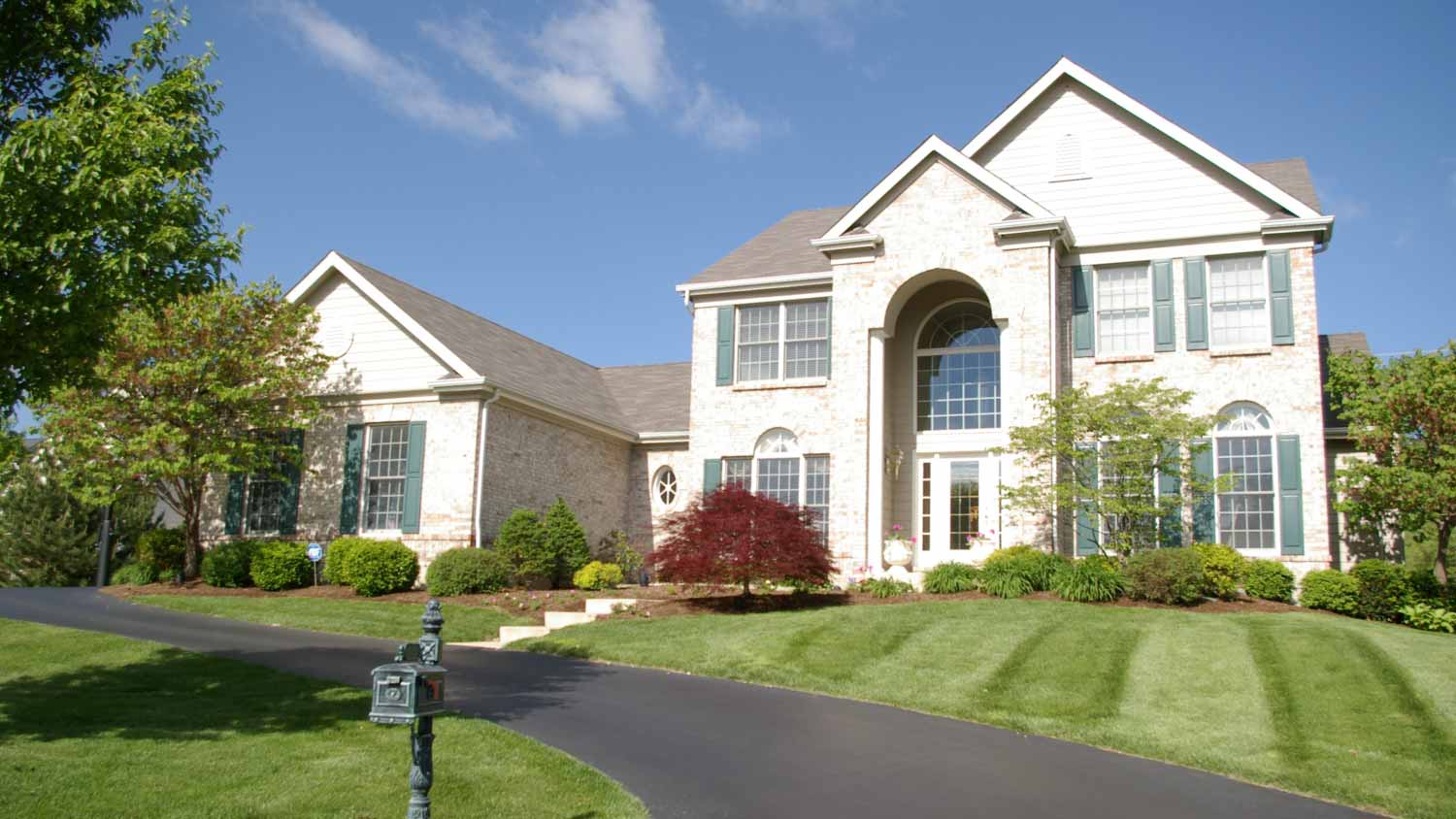
A turnaround can double as a parking space, but it doesn’t have to be the full size of another parking spot if you just need to back into the area to turn around and leave. If you live on a busy road, backing into your driveway or out of it is not only dangerous, but quite a hassle. Adding even a small turnaround may change your life.
11. Connect Two Driveways
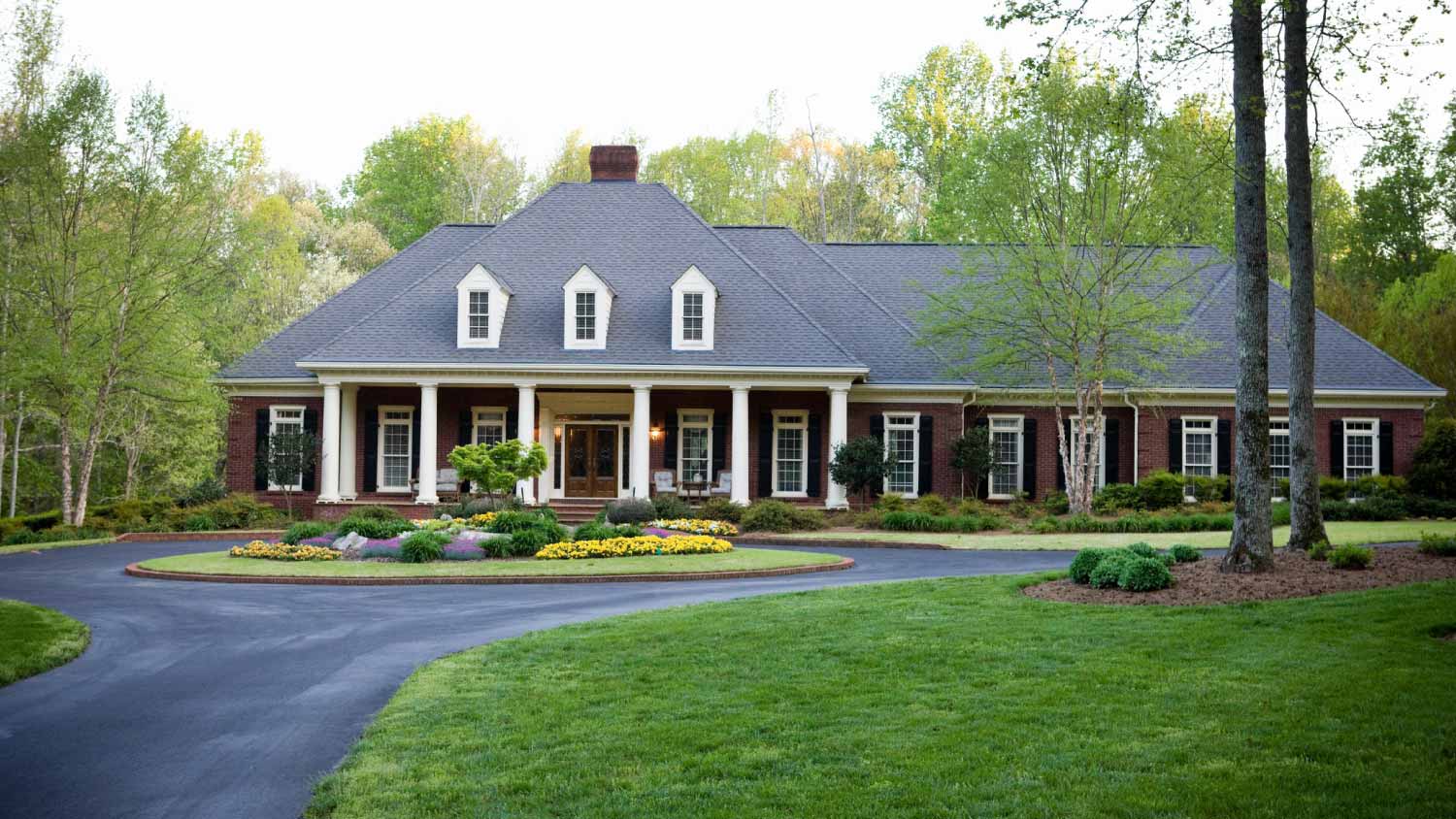
If you’re friends with your neighbors, paving between your driveways can be a fantastic way to add parking and create a shared U-shaped driveway that’s much easier for entering and exiting the roadway. Plus, you’ll get to split the cost. Check with a local driveway paving company for ideas and estimates.
Frequently Asked Questions
Paver driveways add the most value to a home. These driveways use stones made of different materials—brick, concrete, marble, cobblestone, and natural stone. They can easily boost your curb appeal because of their many design options, but style doesn’t come cheap. Installing pavers is long and expensive. On average, paver driveways cost $10 to $70 per square foot, but the investment could be worth it. A well-made and good-looking driveway can add $10,000 to $20,000 in value to your home.
Gravel driveways last the longest. With proper installation and routine maintenance, they can last upwards of 100 years. To make sure they last as long as possible, gravel driveways should be properly graded and leveled during installation and repair. The natural material is extremely durable, but the grooves make it challenging to remove snow and easy for weeds to grow through the cracks. Still, this is nothing an afternoon DIY project can’t fix and lends to the fact that their easy maintenance helps gravel driveways last even longer.
Gravel is the cheapest way to extend a driveway. Gravel is an affordable, practical option that’s easy to install and perfect for DIY projects, helping you save on labor costs. It can be quickly spread and leveled to create extra driveway space without heavy preparation. While gravel doesn’t offer the same durability or finished look as concrete or asphalt, its low cost makes it ideal for budget-conscious homeowners who want a functional solution without overspending.



- 22 Driveway Ideas: Styles and Shapes Suitable for Every Home
- Driveway Width: Ultimate Guide to New or Replacement Driveway
- 8 Tips for Hiring a Dependable Driveway Company
- Pros and Cons of Sealing Asphalt and Concrete Driveways
- When is the Best Time to Seal a Driveway?
- Best Driveway Material for Cold Weather
- What Causes Driveways to Crack?
- Driveway Repair Options: When to Patch, Resurface, or Replace a Damaged Driveway
- How to Fix a Steep Driveway: Solutions for Every Budget
- How Often Should You Seal Your Driveway?
















